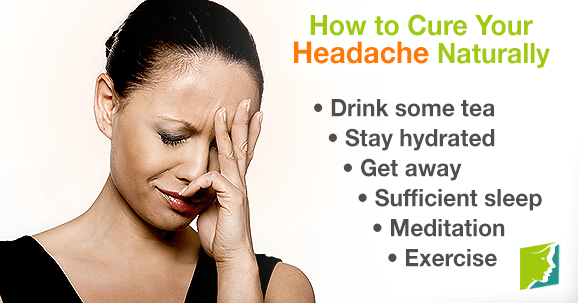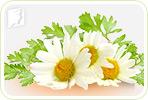There is a strong link between hormones and headaches. Many women experience headaches while menstruating because of this. Later in life, these headaches can worsen as hormones begin to fluctuate during the menopause transition. Peri- and post-menopause are especially susceptible to migraines.
How Can I Cure my Headache?
While over the counter medications are generally considered safe to use, they do sometimes have side effects. There are quite a few other ways to alleviate your headache, which in some cases may work significantly better, depending on the causes of your headaches.
Drink some Tea
While it's true that too much caffeine can exacerbate headaches, drinking a little can actually help ease enlarged blood vessels near the brain. Black tea, green tea and white tea all contain just a fraction of the amount of caffeine found in one cup of coffee. If you do decide to take an over-the-counter pain killer, drinking tea with it can speed up its effectiveness.
Get Away
One of the simplest cures for a headache is to move away from the stimuli that might be causing it. Whether it is line after line of text on a computer screen, noisy traffic or fluorescent lights, finding a cool, quiet place to rest, away from these stimuli can help ease your head tension.
Go to Sleep
Sleeping can help you relax. If you have time to take a nap, chances are you'll wake up feeling refreshed and headache-free.
Stay Hydrated
Even if you think you drink enough water every day, partial dehydration could be the cause of your headache. Different factors, such as exercise, climate and other health conditions, may warrant you to drink more water to keep your body in balance.
Exercise
A light workout is one way to get rid of a headache. The increased blood flow will improve circulation, and exercising outdoors will help you get much needed fresh air.
Try Relaxation Exercises
If aerobics isn't your thing, try a stress-relieving exercise like yoga or meditation. These activities may help ease your headache, and will help keep future headaches at bay if you build them into your regular routine.
More Information
Bright light, noise, caffeine, and skipping meals can all exacerbate your headaches. Click the following link to find out more about behaviors that induce headaches during menopause.
Sources
- U.S. Department of Health and Human Service.(n.d)."Migraines". Retrieved from www.womenshealth.gov.
- Dr. Lichten, Edward. "Menopausal migraine: The Role of Hormonal Replacement." The Menopausal Syndrome. Scottsdale, Arizona January 27, 1990. Reid-Rowell, Inc. Pages 21-24
- Mayo Clinic.(n.d)."Migraines." .Retrieved from www.mayoclinic.com.




